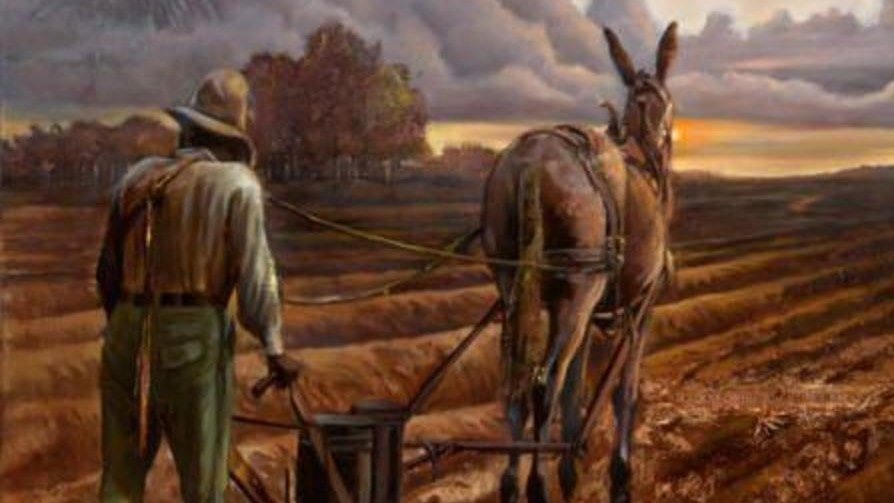|
I‘m concerned about the proliferation of anti-male trends occurring throughout our country. I fear they are evolving into widespread counterproductive movements that will permanently damage our long-standing societal structure. Some of these anti-male trends are actually viewed as positive by institutions of higher learning, members of the younger generation and the Leftist establishment. Reversing these trends will be a formidable undertaking but it can be done. However it cannot be postponed much longer.
Some works of Southern literature have achieved such a secure status that their racial characterizations and use of racial dialect have withstood being labeled “institutionalized Southern bigotry.” A classic case is the escaped slave Jim in Mark Twain’s The Adventures of Huckleberry Finn. The novel portrays Black Jim as much wiser than his White friend Huck. Movie depictions of Southerners ran the gamut from slightly exaggerated regional dialects to bigoted rednecks. Cinematic portrayals of Southern females were stereotyped but that didn’t prevent occasional outstanding performances. Consider British actress Vivien Leigh’s characterizations of Scarlett O’Hara in ‘Gone With The Wind’ and Blanche DuBois in ‘Streetcar Named Desire.’ Miss Leigh won academy awards for both performances. Hollywood films about the South are not attracting the viewing audiences they used to. In many cases, plot lines and characters are less realistic as a result of accommodating contemporary socio/political thinking. The primary considerations for casting for this generation’s films are race, gender and sexual orientation. This is hardly the casting that will attract audiences. The public is inundated with frequent news reports on the lifestyles and happenings of celebrity women, i.e., Oprah Winfrey, Hillary Clinton and Michelle Obama. Indeed, a segment of our society consists of “wannabee” female celebrities who have an inflated sense of their own importance. A prime example is Karine Jean-Pierre, the first Black LGBT White House press secretary. Jean-Pierre’s press briefing bloopers continue to worsen but she seems blissfully unaware of her flaws. The blundering Jean-Pierre actually brags about her expertise The shrews on ‘The View’ usually pursue an anti-male agenda, rarely mentioning Cleopatra, Joan of Arc or Jane Austen. And if the topic ‘Southern belle’ is even mentioned, it would certainly be in a negative connotation. Men cannot understand why The View has had such a female following for so long. The female cast of The View doesn’t present a favorable view of women (should I say American women?) And, in addition to reports of constant bickering, cast members frequently resign. In fact, none of the characteristics of the female panel would seem to attract and hold viewers.
1 Comment
While surfing the Internet, I came across this phrase: “Total equality for everyone all the time.” My initial reaction was: this is a humorous caricature of today’s Leftists, not meant to be taken seriously. But, although it might be humor, it characterizes the Liberal mindset: No one should be better than anyone else.
Equality is unattainable but degrees of equivalence are possible. Society can be gradually modified if modifications are carefully planned prior to taking corrective action. Hindrances must be dealt with but can’t always be anticipated. Consider the post-War Reconstruction of Southern states by occupying Union troops. As the South was under military rule, the Union thought it could rearrange society with little or no local resistance. But local opposition, both outright and subtle, continually frustrated the occupying troops. Eventually the Union lost interest in Reconstruction efforts and abandoned the Southern region. Without coercion from occupying forces, freed slaves and former masters negotiated contractual arrangements. For use of the land, freed slaves agreed to assign a portion of their crop production to the land owners. This was the beginning of sharecropping. Leftists often consider sharecropping as simply another version of slavery, although sharecropping labor was voluntary, not compulsory. The 1860’s concept of sharecropping lasted well into the 20th century. One of today’s hottest issues is reparations for slavery although no former slaves or slave masters still exist. A curious example of today’s reparations is San Francisco, a city with very little involvement with slavery. It plans to dole out $5 million to each Black resident, eliminate all personal debt, guarantee annual incomes of at least $97,000 for 250 years and homes for Black residents for just $1. Before the astonished public could fully grasp San Francisco’s exorbitant reparations agreement, Missouri’s Democratic Representative Cori Bush introduced a Congressional bill requesting $14 trillion in reparations. (Yes! You read that correctly. $14 trillion.) When Rep Bush announced her bill, she said: “The United States has a moral and legal obligation to provide reparations for the enslavement of Africans.” Interestingly, Ms. Bush didn’t describe the Black population as African-Americans but simply as Africans. The potential of receiving reparations has caused the definition of enslavement to be expanded. It now includes such things as segregated housing, separate education, and hindered cultural opportunities. The anticipation of receiving reparations has encouraged a surfeit of Black complaints about the harmful effects of slavery on their ancestors. |
AuthorGail Jarvis is a Georgia-based free-lance writer. He attended the University of Alabama and has a degree from Birmingham Southern College. His writing is influenced by years of witnessing how versions of news and history were distorted for political reasons. Mr. Jarvis is a member of the Society of Independent Southern Historians and his articles have appeared on various websites, magazines, and publications for several organizations. He lives in Coastal Georgia. Archives
June 2023
|


